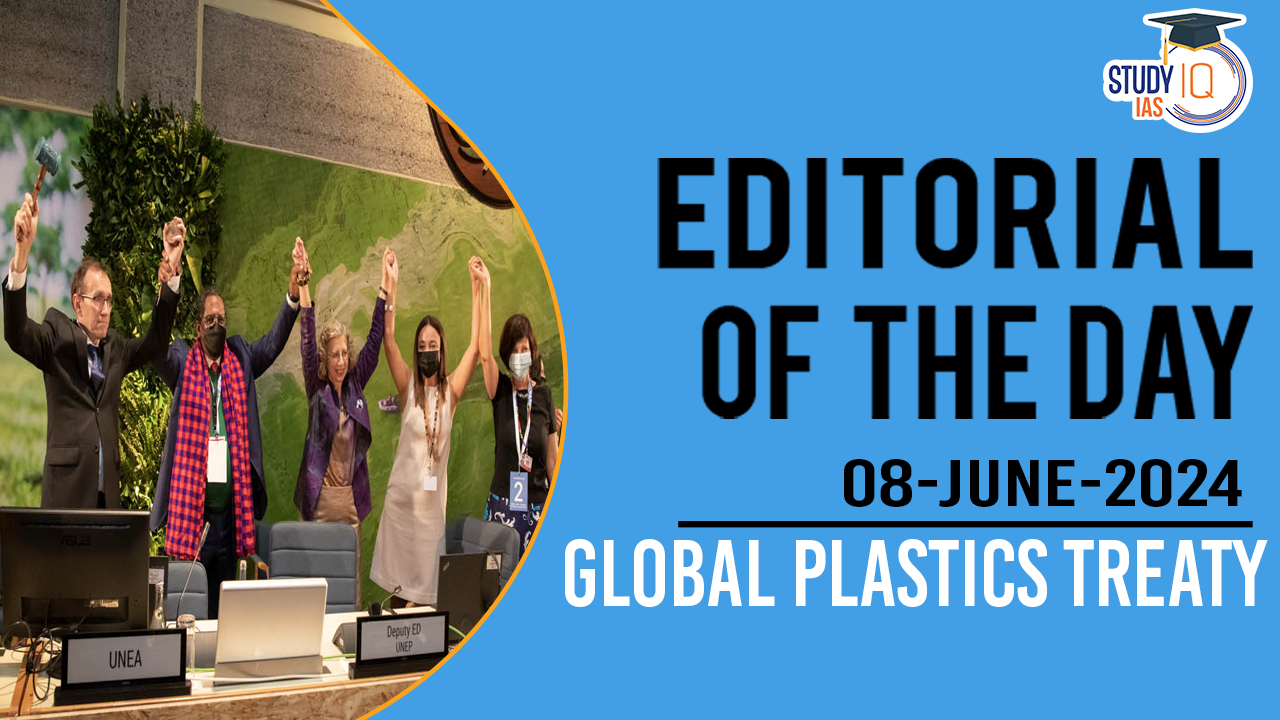Table of Contents
Context
- According to the OECD Global Plastic Outlook, global production of plastic waste has more than doubled since 2000, reaching 353 million tonnes in 2019, with a projected tripling by 2060.
- Only 9% of this waste is recycled, with informal recycling workers accounting for 85% of that amount.
- Despite their crucial role in waste management and environmental sustainability, these workers are often overlooked and vulnerable.
The Role and Recognition of Informal Recycling Workers
- Economic and Environmental Impact: These workers play a crucial role in municipal solid waste management, often subsidising the environmental efforts of producers, consumers, and governments by promoting circular waste management solutions and reducing greenhouse gas emissions.
- Vulnerabilities: Despite their contributions, informal recycling workers face risks from the privatisation of waste management, waste-to-energy projects, and exclusion through policies like Extended Producer Responsibility (EPR).
The Informal Waste and Recovery Sector (IWRS)
- The UN-Habitat’s Waste Wise Cities Tool (WaCT) states that the informal sector accounts for 80% of municipal solid waste recovery in many cities.
- Without the IWRS, the 60 million tonnes of plastic polluting the environment each year would significantly increase.
Global Plastics Treaty and the Need for a Just Transition
- The Global Plastics Treaty is an ambitious initiative involving over 175 UN member nations aimed at eliminating plastics.
- The treaty is being negotiated through an Intergovernmental Negotiating Committee (INC), with a final meeting in South Korea.
- By the end of 2024, the aim is to create a legal document setting out deadlines for countries to decrease plastic production, cut out unnecessary uses, prohibit specific chemicals, and set recycling goals.
- The International Alliance of Waste Pickers (IAWP) has been actively participating in these discussions, advocating for the inclusion of waste pickers’ perspectives and solutions in every stage of policy and law implementation.
India’s Position and Policy Recommendations
- As a prominent voice from the Global South, India supports enhancing repair, reuse, refill, and recycling practices without completely phasing out plastics.
- India prefers flexible targets and emphasises that the treaty should consider factors such as the availability, accessibility, and affordability of alternatives, taking into account the associated costs.
- Also emphasises the need to consider country-specific circumstances and capacities, advocating for the central role of its informal waste pickers in the plastic management framework.
Key Questions and Considerations
- The upcoming INC-5 discussions will address how the Global Plastics Treaty can support a just transition for the approximately 15 million people involved in informal waste collection and recycling, who manage up to 58% of the global recycled waste.
- The treaty aims to incorporate the perspectives of informal waste workers, ensuring their livelihoods are protected and advancing principles of social justice and equity.
| Intergovernmental Negotiating Committee (INC) |
|


 GPS Spoofing and Its Impact in India: A ...
GPS Spoofing and Its Impact in India: A ...
 Amrit Gyaan Kosh Portal: A Comprehensive...
Amrit Gyaan Kosh Portal: A Comprehensive...
 UpLink Initiative: Launched by World Eco...
UpLink Initiative: Launched by World Eco...





















